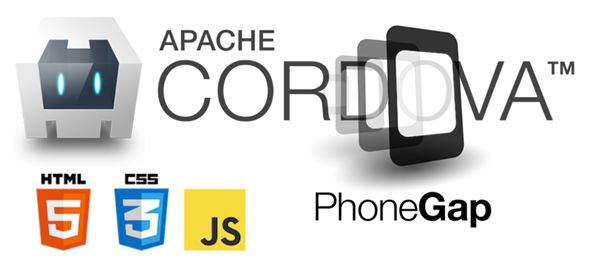Cordova配置文件常用属性配置分析(config.xml)
混合应用开发的模式,越来越被各大公司热推,凭借其快速迭代,跨平台的特性,已经变得炙手可热, 那个为了能更贴合于Native效果,有更好的用户体验,cordova的配置更是关键,今天就来分析一下cordova常用的配置属性。
首先,我们来看一个配置文件:
<widget id="com.phd.demoProject" version="0.1" xmlns="http://www.w3.org/ns/widgets" xmlns:cdv="http://cordova.apache.org/ns/1.0">
<name>MyDemoProjectname>
<description>
MyDemoProject
description>
<author email="[email protected]" href="http://blog.csdn.net/jiangbo_phd">
MyDemoProject
author>
<content src="index.html" />
<allow-navigation href="http://*/*" />
<allow-navigation href="https://*/*" />
<access origin="*" />
<allow-intent href="tel:*"/>
<access launch-external="yes" origin="tel:*" />
<access launch-external="yes" origin="http:*" />
<access launch-external="yes" origin="https:*" />
<preference name="webviewbounce" value="false" />
<preference name="UIWebViewBounce" value="false" />
<preference name="DisallowOverscroll" value="true" />
<preference name="android-minSdkVersion" value="14" />
<preference name="StatusBarBackgroundColor" value="#000000" />
<preference name="BackupWebStorage" value="none" />
<preference name="SplashScreen" value="screen" />
<preference name="SplashScreenDelay" value="2000" />
<preference name="FadeSplashScreenDuration" value="2000"/>
<preference name="Orientation" value="portrait" />
<preference name="KeyboardDisplayRequiresUserAction" value="false" />
<feature name="StatusBar">
<param name="ios-package" onload="true" value="CDVStatusBar" />
feature>
<platform name="android">
<allow-intent href="market:*" />
<icon density="ldpi" src="assets/android/icon/drawable-ldpi-icon.png" />
<icon density="mdpi" src="assets/android/icon/drawable-mdpi-icon.png" />
<icon density="hdpi" src="assets/android/icon/drawable-hdpi-icon.png" />
<icon density="xhdpi" src="assets/android/icon/drawable-xhdpi-icon.png" />
<icon density="xxhdpi" src="assets/android/icon/drawable-xxhdpi-icon.png" />
<icon density="xxxhdpi" src="assets/android/icon/drawable-xxxhdpi-icon.png" />
<splash density="port-ldpi" src="assets/android/splash/drawable-port-ldpi-screen.png" />
<splash density="port-mdpi" src="assets/android/splash/drawable-port-mdpi-screen.png" />
<splash density="port-hdpi" src="assets/android/splash/drawable-port-hdpi-screen.png" />
<splash density="port-xhdpi" src="assets/android/splash/drawable-port-xhdpi-screen.png" />
<splash density="port-xxhdpi" src="assets/android/splash/drawable-port-xxhdpi-screen.png" />
<splash density="port-xxxhdpi" src="assets/android/splash/drawable-port-xxxhdpi-screen.png" />
platform>
<platform name="ios">
<allow-intent href="itms:*" />
<allow-intent href="itms-apps:*" />
<config-file target="*-Info.plist" parent="CFBundleURLTypes">
<key>NSCameraUsageDescriptionkey>
<string>Please allow application use camera!string>
<key>NSPhotoLibraryUsageDescriptionkey>
<string>Please allow application use photo library!string>
config-file>
<icon height="57" src="assets/ios/icon/icon.png" width="57" />
<icon height="114" src="assets/ios/icon/[email protected]" width="114" />
<icon height="40" src="assets/ios/icon/icon-40.png" width="40" />
<icon height="80" src="assets/ios/icon/[email protected]" width="80" />
<icon height="50" src="assets/ios/icon/icon-50.png" width="50" />
<icon height="100" src="assets/ios/icon/[email protected]" width="100" />
<icon height="60" src="assets/ios/icon/icon-60.png" width="60" />
<icon height="120" src="assets/ios/icon/[email protected]" width="120" />
<icon height="180" src="assets/ios/icon/[email protected]" width="180" />
<icon height="72" src="assets/ios/icon/icon-72.png" width="72" />
<icon height="144" src="assets/ios/icon/[email protected]" width="144" />
<icon height="76" src="assets/ios/icon/icon-76.png" width="76" />
<icon height="152" src="assets/ios/icon/[email protected]" width="152" />
<icon height="29" src="assets/ios/icon/icon-small.png" width="29" />
<icon height="58" src="assets/ios/icon/[email protected]" width="58" />
<icon height="87" src="assets/ios/icon/[email protected]" width="87" />
<splash height="1136" src="assets/ios/splash/Default-568h@2x~iphone.png" width="640" />
<splash height="1334" src="assets/ios/splash/Default-667h.png" width="750" />
<splash height="2208" src="assets/ios/splash/Default-736h.png" width="1242" />
<splash height="960" src="assets/ios/splash/Default@2x~iphone.png" width="640" />
<splash height="480" src="assets/ios/splash/Default~iphone.png" width="320" />
platform>
<plugin name="cordova-plugin-whitelist" spec="1" />
<plugin name="cordova-plugin-statusbar" spec="~2.1.3" />
<plugin name="cordova-plugin-splashscreen" spec="~3.2.2" />
widget>
下面我从上到下依次来分析:
定义项目的package 和版本号
在最外层Widget元素上,我们看到有id=”“, version=”“两个属性,当我们初始化cordova项目上这会有一个默认的配置,但之后我们需要根据需要自己进行配置。
- id: 配置好后会自动生成到android的package name 和ios 的bundle id, 也就是说我们不需要再从新根据平台从新指定。
- version: 是用来管理我们的版本号,在版本迭代的时候很重,配置好后,会自动动生成在项目里。
指定项目的名字,描述,作者信息
除了项目名字,其他的不是特别的重要,项目名字决定了ios和android的工程名字:
<name>MyDemoProjectname>描述和作者信息自己填写一下就OK了
启动路径,跳转访问权限配置
<content src="index.html" />
<allow-navigation href="http://*/*" />
<allow-navigation href="https://*/*" />
<access origin="*" />
<allow-intent href="tel:*"/>
<access launch-external="yes" origin="tel:*" />
<access launch-external="yes" origin="http:*" />
<access launch-external="yes" origin="https:*" />- content src 指定了cordova需要默认启动哪个 文件,这个轻易不要篡改。
- allow-navigation 决定是了是否允许http, https的网址跳转。
- allow-intent 这个用于指定是否允许调用电话拨打功能,在早些版本时候,这个是不需要指定的,但是cordova6.0+以后发现这个电话功能不好用了,配置了这个,才解决问题。
禁止webview回弹效果
"webviewbounce" value="false" />
"UIWebViewBounce" value="false" />
"DisallowOverscroll" value="true" /> cordova默认的项目,当滑动时候,在ios设备上会有个回弹效果,对于网站项目这个正常,但是手机app这个是不需要的,而且影响体验,所以我们需要禁止掉这个属性;
"DisallowOverscroll" value="true" /> 是否允许后台存储
"BackupWebStorage" value="none" /> 这个属性我们一定要配置none,否则的后ios会调用icloud存储,这个虽然没有大的影响,但是在发布到apple store的时候可能会因为这个原因,被拒绝掉。
splash 启动配置
"SplashScreen" value="screen" />
"SplashScreenDelay" value="2000" />
"FadeSplashScreenDuration" value="2000"/>
"Orientation" value="portrait" /> 在app启动的时候我们会看到各种启动图片,这个叫splash, 我们需要对此进行配置,前提是我要安装splash插件才能生效的,并且也可配置app的横竖屏,启动页面的持续时间等等。
针对平台的设置
<platform name="android">
<allow-intent href="market:*" />
platform>对于不同的平台会有不同的设置,比如splash和icon, 因为android 和ios上尺寸是不一样的。
插件配置
<plugin name="cordova-plugin-whitelist" spec="1" />
<plugin name="cordova-plugin-statusbar" spec="~2.1.3" />
<plugin name="cordova-plugin-splashscreen" spec="~3.2.2" />我们必须要配置的插件通常就是上面几个,白名单用来允许访问https网络,主要是用在android的项目,但是对于最新的cordova应该不需要了。
plugin这个是最新的定义方式,之前我一直在用feature这个属性,但是后来发现被废弃掉了。
指定好这个plugin以后,每次cordova会检查项目是否有这个几个插件,如果没有的话,自动从新下载,有的话不下载,当本地和定义版本不一致的使用,更新重新下载。
总结
以上就是cordova的配置文件常用解析,当然还有更多的属性值得我们去探索,后期大家自己研究一下吧!
